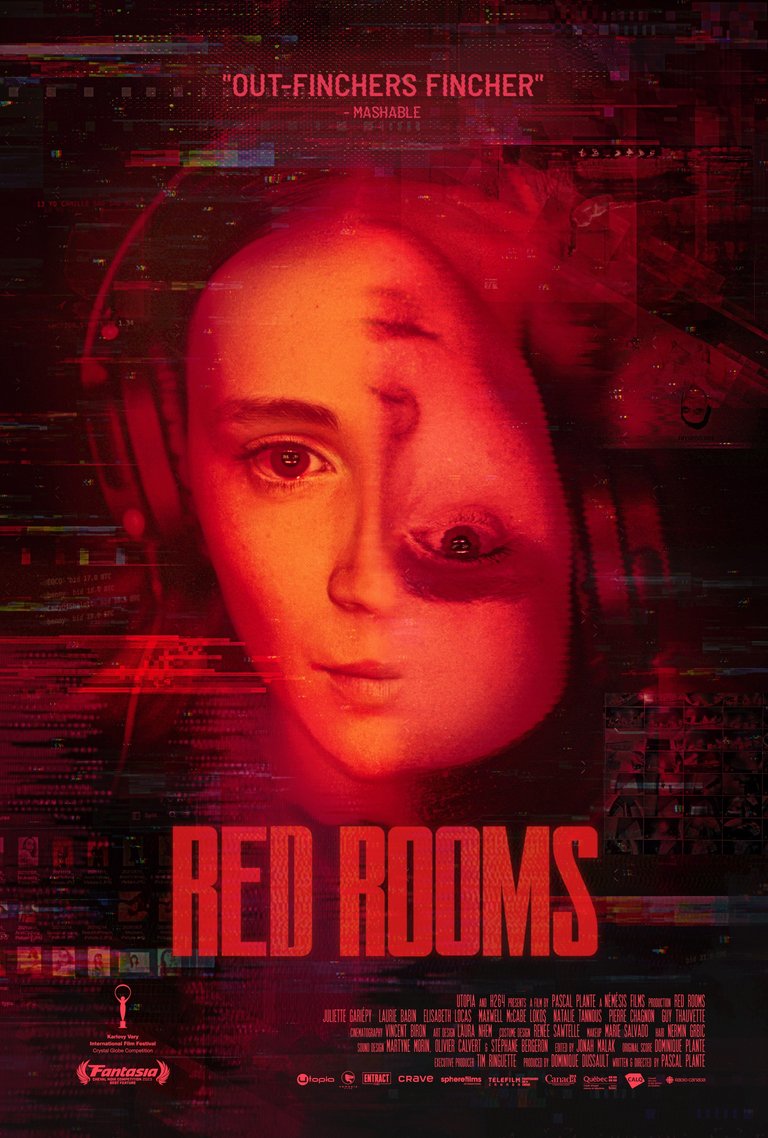Red Rooms: A Chilling Descent Into the Dark Corners of Our Obsession With Crime
Pascal Plante’s Red Rooms is more than a thriller. It is a meticulously crafted psychological puzzle that dives deep into society's unsettling fascination with crime, especially the grim celebrity status given to serial killers. Released on September 6, 2024, Red Rooms makes a bold entry into the mystery, thriller, and crime genres, offering a haunting reflection on how we view and consume violence.
From the beginning, the film immerses its viewers in an icy, sterile atmosphere. Plante’s directing style, described by Tim Brennan of About Boulder as cold and deliberate, sets the tone for the film's central character, Kelly-Anne (played by Juliette Gariépy). Her mental state, a mix of control, obsession, and emotional distance, is mirrored in every scene. Gariépy’s performance stands out, capturing the complexity of a woman deeply entangled in a dangerous fascination.
Kelly-Anne is obsessed with a notorious serial killer on trial for the brutal murders of three young girls. What makes Red Rooms particularly intriguing is not the crime itself but the psychological spiral of those watching from the outside. Dennis Schwartz highlights how Plante takes the viewer on a journey through a desensitized society where murder becomes not just a topic of interest but also a form of entertainment.
Critics like Laura Clifford of Reeling Reviews emphasize the film's unique perspective, which explores the phenomenon of female groupies drawn to serial killers. This is a major theme throughout the movie: the tension between repulsion and fascination, and how we are drawn to such dark stories. This obsession reflects our real-world addiction to true crime documentaries, making the film disturbingly relatable.
At its heart, Red Rooms is a character study, not just of the killer but of the audience itself. Gariépy's portrayal pulls viewers into a world of moral ambiguity and discomfort. It forces us to question why we are drawn to these stories and what our fascination says about us. Beatrice Loayza of The New York Times highlights how the film thrives on paranoid vibes, leaving viewers unsettled even after the credits roll.
The film doesn't rely on gore or violence to shock its audience. Instead, Plante creates a deeply unsettling experience, focusing on the psychological aspects of the story. Marco Vito Oddo of Collider notes how the film leaves no breathing space, with even the smallest moments becoming sources of anxiety.
Despite the film's strengths, it is not without criticism. Nick Rogers of the Midwest Film Journal mentions that the film’s slow opening and somewhat neat conclusion detract from its otherwise magnetic qualities. While the slow build may test some viewers' patience, others will find it adds to the tension and depth of the narrative.
Ultimately, Red Rooms is a film that forces us to confront our own darker impulses. It questions why we are so captivated by stories of violence and why, despite knowing better, we continue to watch. For fans of psychological thrillers and anyone interested in exploring the darker aspects of human behavior, Red Rooms is a must-watch. It holds up a mirror to our society’s disturbing fascination with true crime.

Congratulations @smen! You have completed the following achievement on the Hive blockchain And have been rewarded with New badge(s)
Your next target is to reach 600 upvotes.
You can view your badges on your board and compare yourself to others in the Ranking
If you no longer want to receive notifications, reply to this comment with the word
STOP